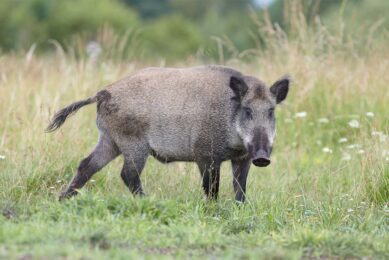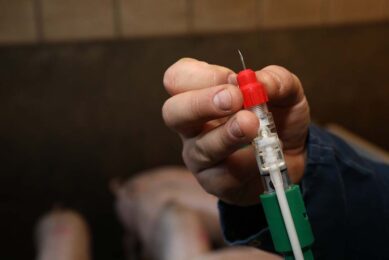ASF Vietnam: Vaccine tested; China promoting large farms

Vietnam said it has had initial success in creating a vaccine to fight African Swine Fever (ASF).
News agency Reuters reported about the novelty, which was shared by Vietnam’s agriculture minister Nguyen Xuan Cuong. According to the official Vietnam News Agency (VNA), he said: “I think we’re on the right track, and we will soon have a vaccine.”
According to a report on the country’s state television (VTV), the vaccine is being developed at the Vietnam National University of Agriculture and it has been tested in its laboratory and at 3 farms in northern Vietnam.
31 pigs were still healthy after receiving an ASF vaccine
In initial trials, 31 out of 33 pigs injected with the test vaccine were still healthy after receiving 2 shots over a period of months, according to the VTV report. Other pigs at the farms died from the virus, the report said. No further details were given about the vaccine or the trials.
The university’s director, Nguyen Thi Lan, said the vaccine still needed further research, and required testing on a larger scale. Whether or not the vaccine will work in practice remains to be seen, as the virus is very complex.
ASF was first detected in Vietnam in February and has spread to villages in 60 of the country’s 63 provinces. According to Nguyen Xuan Cuong, 2.9 million pigs have now been culled, out of a pig population of about 30 million. Apart from Vietnam, the virus in the last year also reached Cambodia, Mongolia, North Korea and – most recently – Laos.
Cambodia reports outbreak in 2nd province
Cambodia today has reported an outbreak of ASF in a 2nd province. After earlier outbreaks in eastern Rattanakiri province, now the province Tbong Kmoum was hit, in a village at about 75km east of the capital Phnom Penh. In Kampong Serey village, 14 of the in total 586 pigs had contracted the virus.
It is the 3rd time that the virus is reported ‘inland’ from Vietnam.
Philippines bans pig imports from Laos
The Philippines has banned imports of pigs and pig products from Laos due to the ASF outbreaks, it said in filings published by the World Trade Organization (WTO). The move follows similar steps by China and Thailand, after 7 outbreaks of ASF had been found in southern Laos.
The Philippines also said it is introducing new ‘biosecurity measures’, such as a quarantine period, for imports of plant-based feed products from countries with the disease. The extra controls on feed imports apply to countries which have reported ASF in its domestic pig or wild boar population.
China reports outbreak in Ningxia slaughterhouse
From time to time, the Chinese authorities officially report an outbreak of ASF to the World Organization for Animal Health (OIE). The latest news in this respect comes from a slaughterhouse in Ningxia province, in central China. One animal was found infected in a herd of 142. It’s the 3rd time a location from Ningxia has reported an outbreak.

Read everything about pig health in the Pig Progress health tool
It is generally believed that the ASF situation in China is considerably worse than is officially being reported. In April, for instance, Rabobank predicted a reduction of the Chinese pig herd between 25-35%, and other experts think that might even be conservative. An anticipated shortage is reflected in the latest pork import figures, about which news agency Reuters reported: May imports came at a volume of 187,459 tonnes of pork, which would be a 63% rise in comparison to May 2018.
Also over the first 5 months, the country’s pork imports were up 19.8% to 658,236 tonnes in total, Reuters said.
Predictable move: China will promote large farms
China will promote large-scale pig farming and reduce the number of small pig farms, the country’s cabinet said in guidelines on ASF prevention and control, according to Reuters.
The government will provide production subsidies to large-scale pig farms in areas heavily affected by the disease, China’s State Council said in a statement on its website.
 Beheer
Beheer








 WP Admin
WP Admin  Bewerk bericht
Bewerk bericht